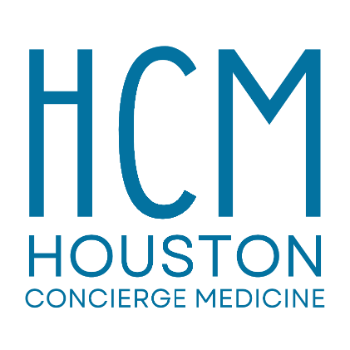Asthma/COPD Treatment in Houston, Texas
Welcome to the Houston Concierge Website! Today we will be discussing Asthma and COPD, two chronic respiratory conditions that can significantly impact one's quality of life. Dr. Burzynski and our team are here to provide expert care and support for individuals managing these conditions.

What is Asthma/COPD?
Asthma and chronic obstructive pulmonary disease (COPD) are both respiratory conditions that can cause difficulty breathing. While they share some similarities in symptoms, they differ in their causes and how they are treated.
Asthma is a chronic condition that affects the airways in the lungs. It is characterized by inflammation and narrowing of the airways, leading to symptoms such as wheezing, coughing, chest tightness, and shortness of breath. Asthma is often triggered by allergens, irritants, exercise, and respiratory infections.
COPD, on the other hand, is a progressive lung disease that makes it hard to breathe. It includes conditions such as emphysema and chronic bronchitis, which are typically caused by long-term exposure to irritants such as cigarette smoke, air pollution, and chemical fumes. COPD is characterized by airflow limitation, causing symptoms like coughing, wheezing, chest tightness, and shortness of breath.

What Are The Symptoms of Asthma/COPD?
The symptoms of Asthma and COPD can vary in severity and frequency, but they generally include:
- Wheezing: A high-pitched whistling sound when breathing.
- Coughing: Especially at night or early in the morning.
- Shortness of breath: Feeling like you can't catch your breath or take a deep breath.
- Chest tightness: A sensation of pressure or discomfort in the chest.
- Increased mucus production: Excessive phlegm or mucus in the airways.
These symptoms can range from mild to severe and may worsen during flare-ups or exacerbations. It is essential to monitor your symptoms closely and seek medical attention if you experience any sudden changes or worsening of your condition.
What are the diagnoses and treatments of Asthma/COPD?
Diagnosing Asthma and COPD typically involves a combination of medical history, physical examination, and diagnostic tests. These may include:
- Lung function tests: Pulmonary function tests (PFTs) can measure how well your lungs are functioning and identify any airflow obstruction.
- Imaging tests: Chest X-rays or CT scans can help evaluate the structure of the lungs and identify any abnormalities.
- Allergy testing: Identifying specific allergens that trigger asthma symptoms can help in developing a personalized treatment plan.
- Blood tests: Assessing inflammation markers or oxygen levels in the blood can provide valuable information about your respiratory health.
Once a diagnosis is confirmed, treatment plans for Asthma and COPD may include:
- Medications: Inhalers or nebulizers that deliver bronchodilators or anti-inflammatory medications to help manage symptoms and improve lung function.
- Lifestyle modifications: Avoiding triggers such as allergens, tobacco smoke, and air pollution can help reduce symptom flare-ups.
- Pulmonary rehabilitation: A structured program of exercise, education, and support to improve lung function and overall quality of life.
- Oxygen therapy: Supplemental oxygen may be necessary for individuals with severe COPD to maintain adequate oxygen levels in the blood.
- Surgical interventions: In some cases, procedures such as lung volume reduction surgery or lung transplant may be considered for advanced COPD.
